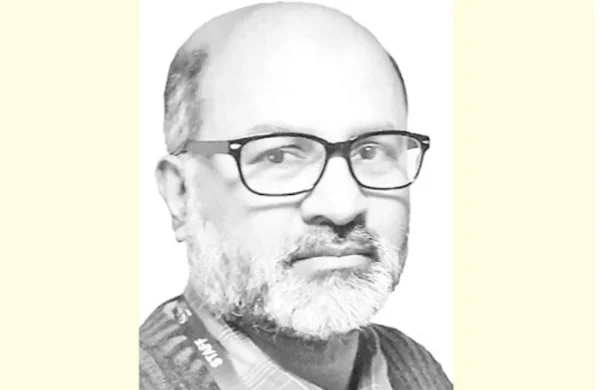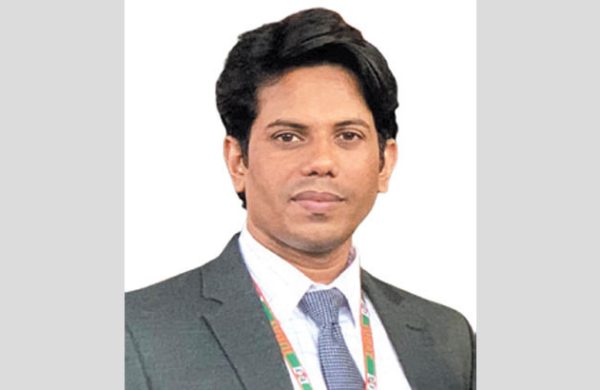Under the shadow of bureaucracy: The marginalized masses
- Update Time : Thursday, July 10, 2025

—Mahruf Chowdhury—
Bangladesh’s public administration carries a deep historical legacy rooted in British colonial rule. The colonial administrative structure was never meant to serve the people — its core purpose was to rule, exploit, and suppress them. Thus, the system functioned through top-down command and control. After independence, there was an expectation of a democratic, participatory, and welfare-oriented state — where people would be the true source of sovereign power, and public administration would act as the people’s servant. However, even after more than half a century since independence, bureaucracy remains entrenched in that same colonial mold — centralized in power, weak in accountability, and severely lacking in transparency. As a result, people’s rights and aspirations still depend on administrative discretion, which is deeply problematic in a democratic state.
When the state becomes increasingly reliant on bureaucracy, the people become sidelined — a kind of modern-day colonization emerges, creating an invisible yet rigid division between the rulers and the ruled. From a historical perspective, it becomes evident that a colonial legacy-bound public administration can never truly function in favor of a democratic and people-centric state. As previously mentioned, the foundations of Bangladesh’s administrative structure were laid during British colonial rule, where the central goal was to protect the rulers’ authority, extract resources through exploitation, and maintain strict control over the population. Civil servants were not seen as public servants but as representatives of the ruling class. Citizens were treated as subjects, devoid of rights.
After British rule ended in 1947, this administrative structure remained largely intact in Pakistan and continued into independent Bangladesh in 1971. The goal of independence was to build a people’s state where the public administration would be the driving force of public service. In reality, by continuing with the inherited structure without proper reform, a certain “taste for power” developed within the bureaucracy — a taste from which they have yet to free themselves. A power-centric structure rooted in personal influence and political allegiance has emerged, turning bureaucrats from public servants into masters. This unaltered form of colonial legacy has rendered public administration alienated from — and in many cases antagonistic to — the people.
In today’s context, the extent to which bureaucratic power has become centralized in Bangladesh is no longer a secret; it is being exposed more blatantly with each passing day. The Constitution clearly states that public servants are to serve the people and act under the government’s direction for public welfare. But in practice, these servants of the republic have, at times, dared to threaten the government itself, behaving more like owners of the state than its employees. Such arrogance is not only an affront to constitutional spirit but a mockery of democratic values.
Today, the bureaucracy is no longer just a technical arm for implementing policy — due to its politicization, it has gained dominance in policymaking as well. The blurred lines between political authority and bureaucracy have allowed civil servants to increasingly influence political decisions. Elected representatives are gradually being sidelined, and the people’s voices are filtered out and lost through bureaucratic layers.
Bureaucracy has now emerged as a powerful ‘middleman’ standing between political leadership and the people. It attempts to influence or control politicians on the one hand, and on the other, forms an alliance of mutual benefit — sharing power and public resources — which is a real-world embodiment of political scientist Robert Michels’ “Iron Law of Oligarchy.” In such a system, governance is concentrated in the hands of narrow elite, turning democracy into a mere formality centered on elections. The lack of transparency, accountability, and rule of law is one of the main reasons behind this oligarchic nature of public administration. When bureaucrats begin to see themselves as above accountability, it leads not only to irresponsibility but also to a dangerous intoxication with power. Today, Bangladesh’s public administration symbolizes exactly this.
Many civil servants show reluctance to answer for failures or misconduct, and often escape accountability under political protection. As a result, authoritarianism replaces administrative efficiency, and exploitation takes the place of public service. Abuse of power, political partisanship, project-based corruption, and irresponsible decision-making have become common traits among bureaucrats. This continuous deterioration is eroding public trust — a dangerous sign for any democratic system. Public service, which should be a citizen’s right, has turned into a matter of bureaucratic benevolence. The lack of transparency in development projects is not just causing financial waste but also deepening inequality. Citizens in politically or administratively neglected areas are often deprived of development, leading to demographic and geographic imbalances. According to Monitoring and Evaluation Theory, no state program can succeed without transparency and regular evaluation. Unfortunately, these are glaringly absent in our administrative reality.
Today’s demand for state reform is not only about administrative restructuring — it is a continuation of the public aspirations that emerged from both the 1971 Liberation War and the 1990 mass movement. Even after 53 years of independence, we have yet to establish an accountable, people-centered, and welfare-oriented state — largely due to the lack of political will, ethical commitment, and principled effort in reforming the public administration.
Our bureaucracy remains largely colonial in behavior, centralized in structure, and disconnected from the public in its operations. Radical reform in the structure of state administration is now inevitable. While countries around the world are moving toward administrative efficiency, transparency, and participatory service delivery, Bangladesh’s outdated bureaucratic structure remains an obstacle to both development and democratic growth. Overcoming this situation will require a comprehensive, long-term, and policy-based administrative reform strategy.
The essential steps toward transforming the structure of the state apparatus include:
DECENTRALIZATION OF POWER:
Centralized administrative power alienates public administration from the people. Through decentralization and the empowerment of local government and grassroots administration, public administration can become more accessible. This not only improves service quality but also enhances public trust and participation.
ENSURING ACCOUNTABILITY AT ALL LEVELS:
An independent and impartial auditing and evaluation mechanism must be established to closely monitor bureaucratic activities. Such systems must be designed to function free from political interference to properly evaluate administrative conduct.
INSTITUTIONALIZING TRANSPARENCY:
No administrative integrity can be achieved without transparency. Here, digital technology can play a vital role. E-governance, open data portals, and online feedback systems can expose administrative processes to public scrutiny, reducing corruption and misuse of power. Strengthening and enforcing the Right to Information Act can be an important step in this regard.
PROMOTING ETHICS AND PROFESSIONAL COMPETENCE IN PUBLIC SERVICE:
Regular training of officials, evaluation based on international benchmarks, and value-based human resource development are essential for building a modern, humane administration.
For a population long deprived and oppressed under the shadow of bureaucracy, structural and psychological transformation of the civil service is the only path to freedom. The administrative apparatus must be reimagined — not as a colonial tool of control, but as a public-serving institution, democratic in principle and accountable to the people.
This requires both political will — where politicians learn to see the bureaucracy as a tool for service, not domination — and active civic engagement. Public pressure, research, training, and citizen awareness can compel the bureaucracy toward progressive reform. The media, too, has a key role — through investigative and responsible journalism, it can expose irregularities, corruption, and inefficiency and demand accountability.
We can build a transparent, humane, accountable, and welfare-oriented civil service that truly serves the people. But to do that, we must abandon colonial legacies and develop a new administrative framework and philosophy rooted in our own context — one that is just, democratic, and fit for the aspirations of a free people.
———————————————————————
The writer is Visiting Faculty, University of Roehampton, UK | Email: [email protected]



















